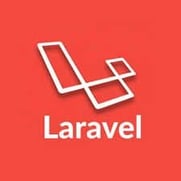How should your website be built? WordPress Vs Platform Builders Vs Custom.

Technology shouldn’t be the first thing to consider when planning a new website for your business, but it’s certainly up there in terms of important decisions.
You should decide what the website will do for the business before you decide how the website will do it. This is what we call “business-first” and is how you can ensure that the website will be a business asset.
So, once you’ve figured out what the website needs to do, you will need to think about the how, and the first thing to consider is which technology you should use.
- The Three Categories
- Hosted Platform Builders
- Content Management Systems
- Frameworks
- Final Considerations
Sure, most basic functions (like email forms and social sharing buttons) are usually available on any relevant technical stack, and some technologies offer some very attractive and unique benefits. However, there are always trade-offs, and what may seem like a great idea at the time may turn out to slow your business down, or consume more resources than you had expected.
Unfortunately, most technologies (and the respective developers), tend only to talk about the benefits, which makes it hard to make a critical decision for your business.
In this post, I’m going to put the most popular technology options into three categories, and compare these approaches as they apply to website development. I’ll weigh them up based on their strengths, weaknesses, and I’ll highlight the sorts of projects they are best suited for.
The Three Categories
The categories that I’m going to use for this comparison are based on their developmental characteristics as well as their underlying frameworks. Before I go too much further, I should point out that this is my personal method of categorising these technologies; other developers and designers may have different opinions on this. Nonetheless, this categorisation provides a digestible approach to managing the plethora of options that are available.
- The first category is “Hosted Platform Builders”. This category includes DIY drag-and-drop applications like Wix, Weebly, and Shopify.
- The second category is “Content Management Systems”. These are systems like WordPress, Joomla, and Drupal.
- The third category is “Content Management Frameworks”. This includes frameworks like October, Swift, and Webflow
While “Web Application Frameworks” (e.g., Laravel) can be used to build websites, these are more suitable for application and software development, and therefore outside the scope of this comparison.
So, which one is right for you? Let’s see if we can work that out.
Hosted Platform Builders
 Platforms like Squarespace, Wix, Weebly, and Shopify provide easy to use applications that enable the ordinary person to quickly create a working website. Overall, these platforms offer the ability to have a website live in the quickest possible time-frame, and at the cheapest possible price (often free). They enable anyone to simply create an account, choose a template, and “pop”, you have a website that you can customise from the front-end without knowing how to write code. These solutions offer premium plans that allow you to have your own email accounts, use your own domain, avoid displaying their ads, and various other upgrades. Extensions and integrations are available for most common things (e.g., subscription forms), however, they are not easily changed if something doesn’t work for your unique case, and if something isn’t available, you’ll have to get it custom developed which could get expensive.
Platforms like Squarespace, Wix, Weebly, and Shopify provide easy to use applications that enable the ordinary person to quickly create a working website. Overall, these platforms offer the ability to have a website live in the quickest possible time-frame, and at the cheapest possible price (often free). They enable anyone to simply create an account, choose a template, and “pop”, you have a website that you can customise from the front-end without knowing how to write code. These solutions offer premium plans that allow you to have your own email accounts, use your own domain, avoid displaying their ads, and various other upgrades. Extensions and integrations are available for most common things (e.g., subscription forms), however, they are not easily changed if something doesn’t work for your unique case, and if something isn’t available, you’ll have to get it custom developed which could get expensive.
However, the most definable characteristic of these solutions is that they are platform-based. This closed environment means that your website is never really yours. You are simply renting space on their server. You cannot download your website and host it elsewhere, or keep a copy, without paying the monthly hosting fees. While the hosted environment works well for many private uses and some small businesses, it can simply be too limiting for growing businesses that need a bit more freedom.
Also, there is the reality is that it takes much longer to upload content and format the layout than most people account for. Furthermore, it’s usually quite obvious when a website has been assembled in a DIY platform. This is fine for hobbyists, but it’s not ideal for businesses that are looking to establish a brand.
Pro's
- Easy to use
- Loads of templates to choose from
- Easy to add common functionality
- Technology is taken care of.
Con's
- It takes more time than most realise
- Non-transferrable. Your website will always live on their system and will never really be yours.
- Not very scalable. Features are limited to what is available, and extending beyond this is difficult, which can limit business growth
- Websites usually end-up look like DIY websites.
Ideal Users
- Hobbyists
- Personal blogs or other personal pages
- Very small businesses that simply need an online business card.
- Some simple e-commerce businesses may find Shopify provides a quick solution to getting started.
Content Management Systems
 While there are several notable Content Management System (CMS) options to choose from, the outstanding contender in this category is undeniably WordPress. WordPress owes its success, in part, to the truly enormous ecosystem that supports this system. While Drupall and Joomla (and others) share similar benefits inherent to the CMS model, they simply aren’t able to compete at the level that WordPress has achieved over the past decade. Subsequently, not all of the pros and cons in this comparison will equally apply to all CMS systems.
While there are several notable Content Management System (CMS) options to choose from, the outstanding contender in this category is undeniably WordPress. WordPress owes its success, in part, to the truly enormous ecosystem that supports this system. While Drupall and Joomla (and others) share similar benefits inherent to the CMS model, they simply aren’t able to compete at the level that WordPress has achieved over the past decade. Subsequently, not all of the pros and cons in this comparison will equally apply to all CMS systems.
Here are some quick stats that showcase WordPress’s popularity:
- WordPress powers 33% of all websites on the Internet
- Woocommerce (the popular ecommerce extension for WordPress) leads the global ecommerce market with ~24,000 sites
- There are over 50,000 plugins in the official repository and many thousands more in marketplaces like Code Canyon.
And in case you were wondering, this post refers to the self-hosted version of WordPress; not the blogging platform that is wordpress.com.
Unlike the platforms mentioned above, WordPress is an opensource technology. This means that the application can be downloaded, run, and modified on any suitable hosting environment. While originally developed as a blogging system (hence the name), the capability of the system can be extended to achieve almost anything any website owner would desire. From truly powerful ecommerce systems, online courses, support ticketing, to appointment scheduling, and beyond.
The ability to achieve diverse and powerful functionality, along with the developer-friendly application (making customisation super-easy for those that know how), makes WordPress an easy favourite among many web developers and business owners.
However, there are tradeoffs. While most users can manage a WordPress website easily enough, there is a real learning curve when it comes to building a website and making it “work just right”. For this reason, it wouldn’t be a sensible idea to DIY your own WordPress website unless you already knew what you were doing.
Another consideration is that owing to the open market of plugins (that range in their quality), it can be very easy to create bloated websites that load slowly and become overly complex to manage. Plugin choice and usage must be done judiciously.
Finally, as WordPress websites are so common, WordPress is an attractive target for cyber attacks. However, as long as a WordPress website is maintained and updated, it is no more vulnerable than any other kind of website (by the way, maintenance is important for all kinds of self-hosted websites). And some hosting services (like ours at SplashDigital) handle maintenance and updates for their customers, so your website will always be up-to-date.
Pro's
- It is a content management system, so it is designed to be used by non-technical people.
- Development time is quick, so professional websites are affordable.
- Enormous ecosystem enables almost limitless extendability through professionally developed plugins and support services that are dedicated and optimised for this application.
- Developer friendly. Anything can happen on WordPress. Look at www.whitecloud-solutions.com as an example of the extendable power of WordPress.
- It is yours, and you can move it or even save it to your own hard drive if you want.
Con's
- Not really suitable for a first-time DIY build. While you could build a website without code, the learning curve is a bit steep and you’ll find that the time lost attempting to learn the system will pale in comparison to the cost of hiring a professional.
- Maintenance is a must.
- Some bloat is inevitable.
Ideal Users
- Small to large businesses looking for a professional solution at an affordable cost.
- Startups looking for a prototype, or MVP, or looking for a solution that can grow with them.
- Business owners and e-commerce stores looking for a solution with more flexibility.
- Businesses that want a custom designed website, or want to include custom functionality
Frameworks
 While one could argue that WordPress is actually a framework, this is only true for developers that choose to use it this way, which is the minority. In any case, approaching WordPress as a framework (rather than a plugin-based CMS) would shift it into this category.
While one could argue that WordPress is actually a framework, this is only true for developers that choose to use it this way, which is the minority. In any case, approaching WordPress as a framework (rather than a plugin-based CMS) would shift it into this category.
Other CMS frameworks that would fit into this category include the likes of October, Craft, and Webflow.
These approaches make the final step away from resembling a DIY solution, and one step closer to becoming a truly bespoke option. Unlike the solutions above, these websites are typically developed from a blank canvas (or very near to), and are made in a way that ensures features are added without creating additional bloat. However, adding features takes more time, as they must often be custom developed. The end result of these solutions are usually very clean, light, and on-point. However, the cost to develop will probably exceed the available budget for the average small business. On the other hand, if your business requires original functionally and must perform to a high standard, then this approach could be a smart move.
Pro's
- Extremely customisable.
- Excellent for data-driven applications.
- Lightweight and fast
- Easier to maintain once live
- Scaleable
Con's
- Cost
- Time to develop can be longer
- Project planning is required
Ideal Users
- This approach would be suitable for a phase-2 start-up, or an established business that requires a light solution with heavy custom functionality. Owing to the cost to develop, this option is typically feasible for medium to large businesses that are confident in their medium-term future.
Final Considerations
Of course, there are exceptions to the norms, and your case may be one of these. However, hopefully, now you have a clearer idea of the technical options that developers may suggest for you. Before you make your investment, keep in mind:
- Developers will usually have a preferred approach. Make sure you ask about their approach, and why they believe it is right for your business.
- Technology is not worth its weight in code. What you pay for will be the time that goes into creating your solution.
Please let me know if you like this post, or if you have any questions about how to choose the right technology for your next website.
TAGS: